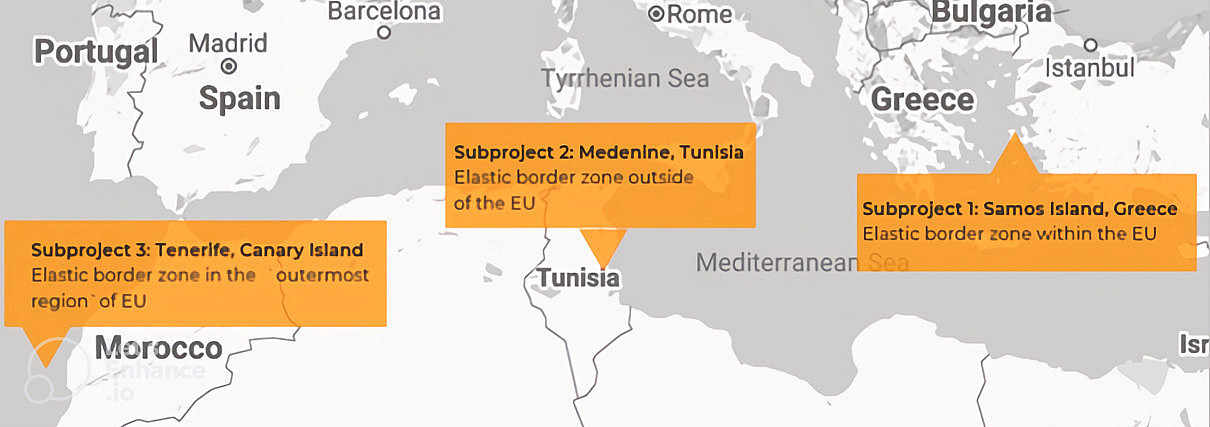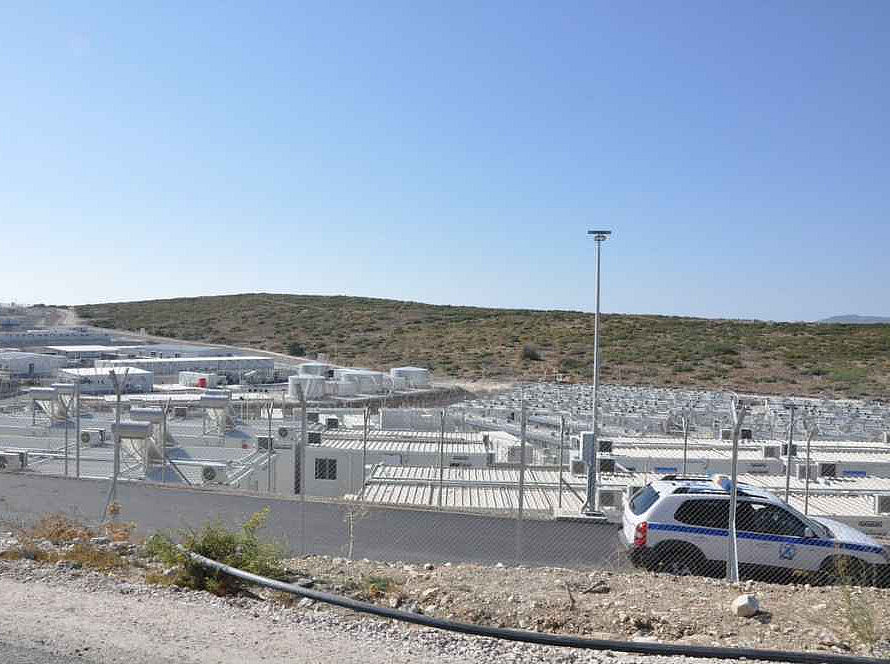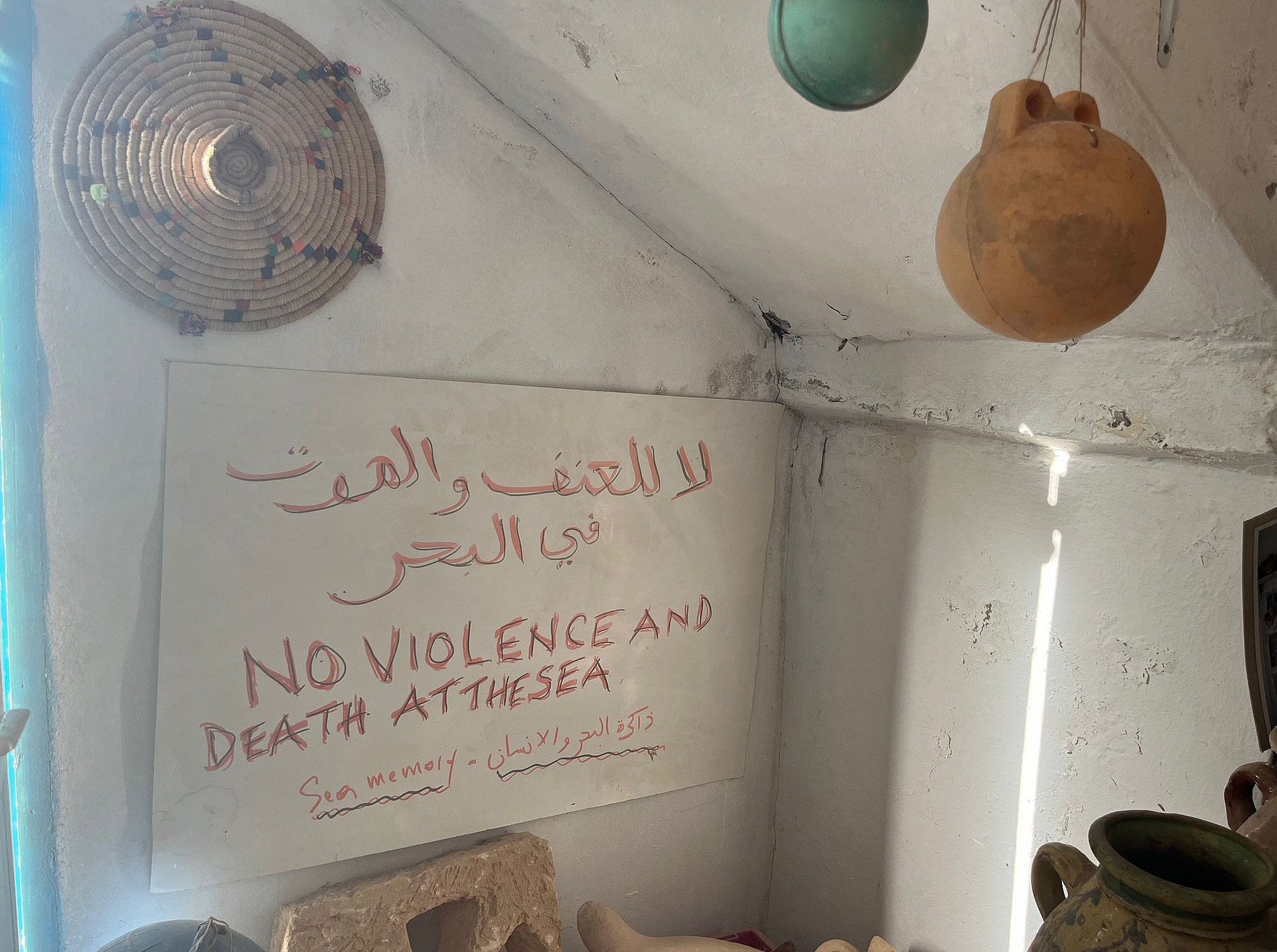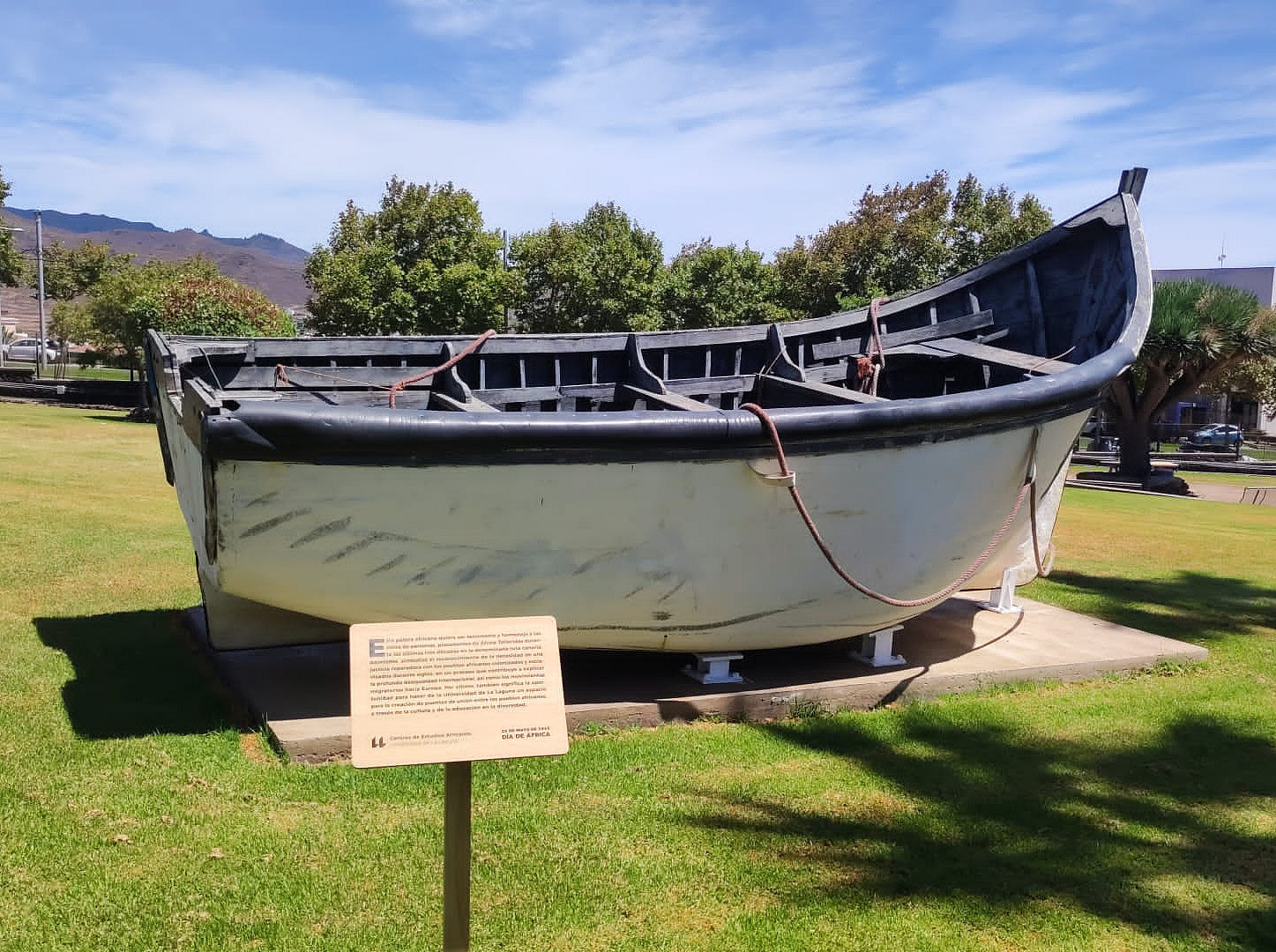Research Unit 2
Socio-Political Impacts of the Elastic Border
The second research unit analyzes the socio-political impact of the elastic border in three border zones along the EU’s external southern frontier. Building on the concept of elasticity in physics, we approach elastic borders as zones of stress and strain that transform social relations, social boundaries, and everyday life on the ground. To gain an in-depth understanding of these social transformations, Research Unit 2 carries out three ethnographies at key nodal points of the EU`s elastic border: Samos (Greece), Medenine (Tunisia), and Tenerife (Canary Islands).

Subproject 4: An Ethnography of the Elastic Border Zone on Samos Island, Greece
This subproject examines tensions, conflicts, and modes of collaboration on the Greek island of Samos, which is one of the five islands in the Aegean where the EU Hotspot Approach is being implemented since 2015. Samos was the only island with a hotspot camp built in very close proximity to the island`s capital Vathy; all other hotspot facilities in Greece were located in remote locations of the islands. At certain moments, the size of the migrant population was almost equal to the resident population in Vathy, while the presence of EU and IO personnel has also affected the social fabric and economy of the tourist island. In September 2021, the first “Closed Controlled Access Centre” was inaugurated as a state-of-the-art, high-tech, fenced facility which replaced the old campy in Vathy. Researcher Artemis Fyssa is exploring how different constituents of the island population, whether long-term resident, migrant, EU staff or NGO worker, have been experiencing and responding to the stresses and strains introduced by the elastic border zone in Samos.


Subproject 5: An Ethnography of the Elastic Border Zone in Tunisia
This subproject examines how repeated attempts at extending the EU’s elastic border along the Tunisian-Libyan border zone impact the local society in the governorate of Medenine. Tunisia has been a pivotal target of EU externalization policies since the 2011 revolution and the outbreak of civil war in neighbouring Libya in 2014, which have both resulted in increased maritime departures. Ever since, Tunisian security forces and UN and EU-sponsored humanitarian actors at the Tunisian-Libyan border have coalesced in the pursuit of more stringent migrant interceptions, returns, and registrations along the Central Mediterranean Route headed north. With the 2023 EU-Tunisia Memorandum, the country once again became a central talking point in EU border and migration management. Researcher Dr. Chiara Pagano explores the socio-political transformations on the ground in this elastic border zone among long-term residents, newcomers, humanitarian actors, local institutions and security personnel.
Subproject 6: An Ethnography of the Elastic Border Zone in the Canary Islands
This subproject delves into the socio-political transformations taking place in Tenerife, an elastic border zone in the making in the Canary Islands, positioned in the European Union's 'outermost regions.' As the Eastern and Central Mediterranean routes witness escalating militarization, the Canary Islands have emerged as an increasingly sought-after arrival point from Western Africa. This trend is expected to intensify in response to the ongoing impacts of climate change. Consequently, the Atlantic route is attracting the attention of national and supranational authorities, exemplified by the introduction of the "Canary Island Plan" in 2021. This strategic initiative envisions the establishment of detention and reception centers capable of accommodating up to 7,000 migrants. Researcher Mirco Buoso is examining the stress and strain resulting from the emergent elastic borders zone and its impact across the island, including in key areas hosting the largest refugee camps in the archipelago.
